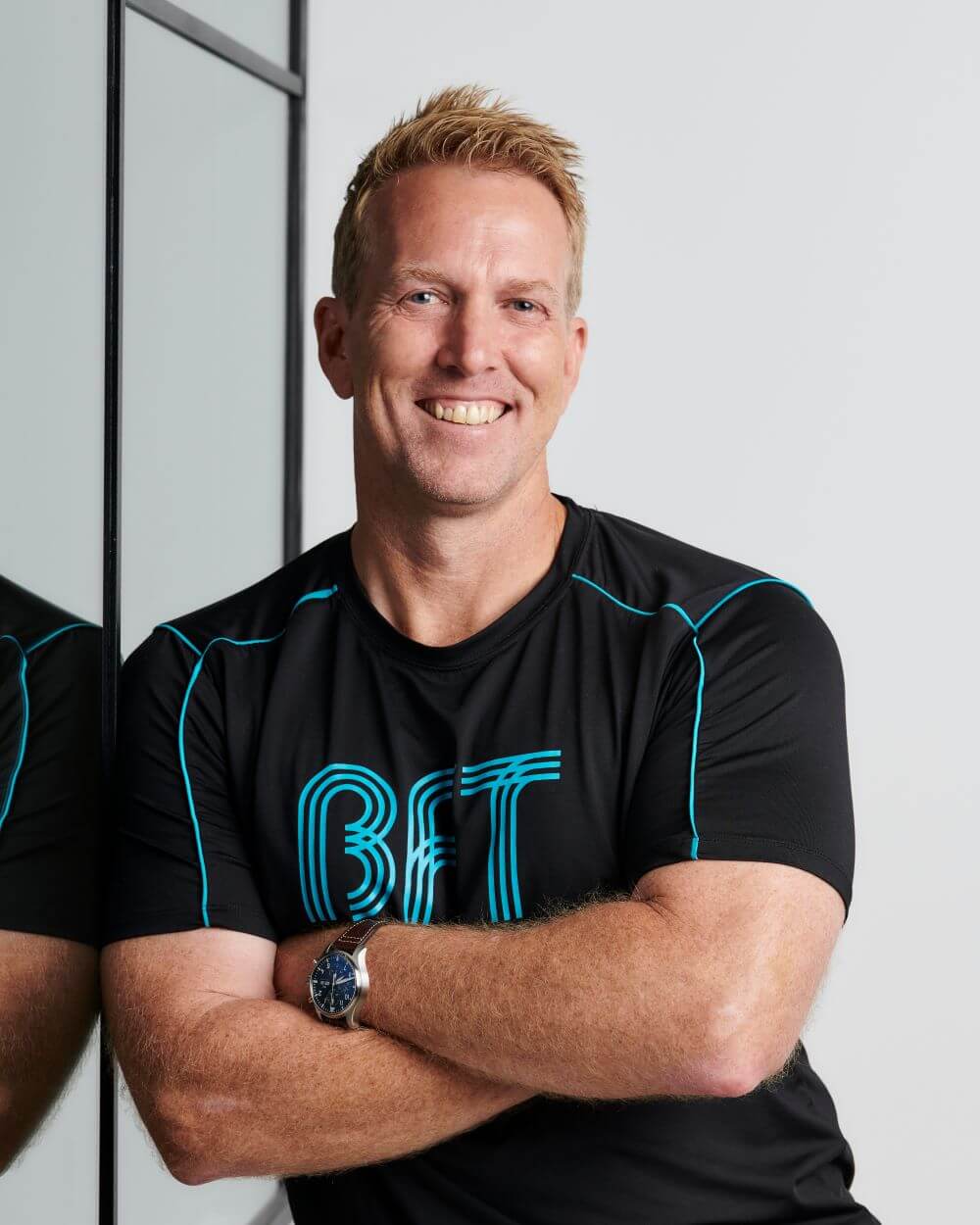Posted:11-December-2024
Rest assured: why recovery is an essential component of your fitness regime

The fitness industry is known for its revolving door of trends, fads and in-vogue workouts, but one fitness phenomenon that’s here to stay – not to mention, an essential element of your fitness journey – is the shift towards recognising the importance of recovery.
Here, Cameron Falloon, founder of Australia’s fastest-growing fitness franchise Body Fit Training (BFT), discusses the benefits of incorporating a recovery regime into your regular training session. He delves into why recovery is so crucial, analysing why recovery can often be overlooked and provides some effective strategies on how to include recovery into your workout regime.
Now is as good a time as any to talk about recovery. Over the festive period, people generally either have less time to devote to working out or are looking ahead to kick-starting their fitness journeys in the new year.
Whatever the motivation for wanting to work out, integrating enough time to recover (properly!) into your fitness regime is essential to feel fitter, stronger and healthier – and not just in the physical sense, but mentally too.
The importance of recovery
So why is factoring in the right amount of time so crucial? Well, there are multiple reasons why you should add recovery into your schedule. Below are a number of reasons why recovery matters so much:
- Muscle repair and growth – exercise creates tiny tears in your muscle fibres that need time to heal, making your muscles stronger. Without sufficient rest, muscles don’t have the chance to repair, hindering growth and making injuries more likely.
- Reducing soreness – recovery alleviates Delayed Onset Muscle Soreness (DOMS), which peaks 24-72 hours after exercise. Recovery allows your muscles to heal properly.
- Energy replenishment – exercise burns energy. Intense workouts deplete your glycogen stores – a key energy source – and recovery allows these energy reserves to rebuild.
- Preventing injury and overtraining – rest prevents chronic fatigue, reducing your risk of injury, and improves your performance in the long run.
- Immune system health – intense exercise suppresses your immune system, making you more susceptible to colds and minor infections. Rest is essential to avoid this, as it allows your immune system to return to normal.
- Mental resilience – rest, including sleep and low-stress activities, keeps you mentally fresh and motivated to continue with your workout regime.
- Enhanced performance – with proper recovery, you’re better prepared to push yourself further in your next session and each session thereafter.
Taking time to recover is an essential part of you reaching your fitness goals. Resting your body keeps you strong, healthy and mentally ready to take on your next workout.
But why is it sometimes overlooked?
Despite the reasons above highlighting the importance of recovery, it is frequently undervalued in fitness routines, meaning people can miss out on essential resting periods - not realising that recovery is critical for muscle repair, injury prevention and long-term improvements in your performance.
Another reason it can be overlooked is the fear of falling behind. Many worry they’ll lose their progress if they slow down, creating a cycle which can lead to overtraining and burnout. Ironically, this mindset is more likely to lead to setbacks like injuries or chronic fatigue, ultimately hindering progress rather than speeding it up.
Modern technology also plays a role. With our phones and devices constantly within reach, it can feel hard to disconnect, blurring boundaries between work, personal life and rest. But perhaps the most common reason recovery is overlooked is that the benefits aren’t immediately visible. A fitness journey takes time, and in an environment that often values instant results, scheduling rest days can feel counterintuitive.
By understanding these common barriers, we can start to reframe recovery – consistency is king and you need to trust in the process – recovery being a key component of said process, bringing around short-term relief and long-term rewards.
How to do recovery right
Recovery accelerates muscle repair, reduces the risk of injury, optimises your performance and aids with stress relief and relaxation but recovering right comes in all different shapes and sizes. Here are some great strategies that may work for you:
- Cool down – cooling down aids recovery by gradually lowering your heart rate, improving blood flow to reduce soreness, keeping your muscles ready for your next workout.
- Sleep – aim for 7-9 hours of quality sleep to promote recovery and support hormone regulation.
- Hydration – rehydrate to replace fluids lost through sweat. Drinking lots of water also helps with nutrient transportation.
- Nutrition – to recover properly you also need to fuel your body right. Ensure you’re having a balanced diet with adequate protein, carbohydrates and fats to support muscle repair and energy restoration.
- Active recovery – low-intensity activities like walking or yoga can help with your circulation and overall recovery without additional strain. Stretching is another low-intensity activity that reduces muscle tension, prevents stiffness and promotes blood flow.
At BFT, recovery is as important to us as the workouts you do. Throughout all our studios, we encourage all our members add recovery to their training programmes, educating them on recovery’s importance. In fact, we are planning to introduce a new programme to participating studios over the coming months – Recovery 10X. This innovation will give our members access to a whole host of resources aiding recovery including infrared saunas and normatec compression boots – keep an eye out for information as we enter 2025.
Recovery is vital – it’s essential for lasting progress. Remember, your fitness journey is a marathon, not a sprint, and embracing recovery will help make you stronger, more motivated and keep you on track towards your goals – trust the process, and recovery is a key component of said process.

Interested and want to know more about Body Fit Training (BFT)?
The Body Fit Training (BFT) profile outlines all aspects of their franchise opportunity and allows you to contact them for further information or to ask a question.




